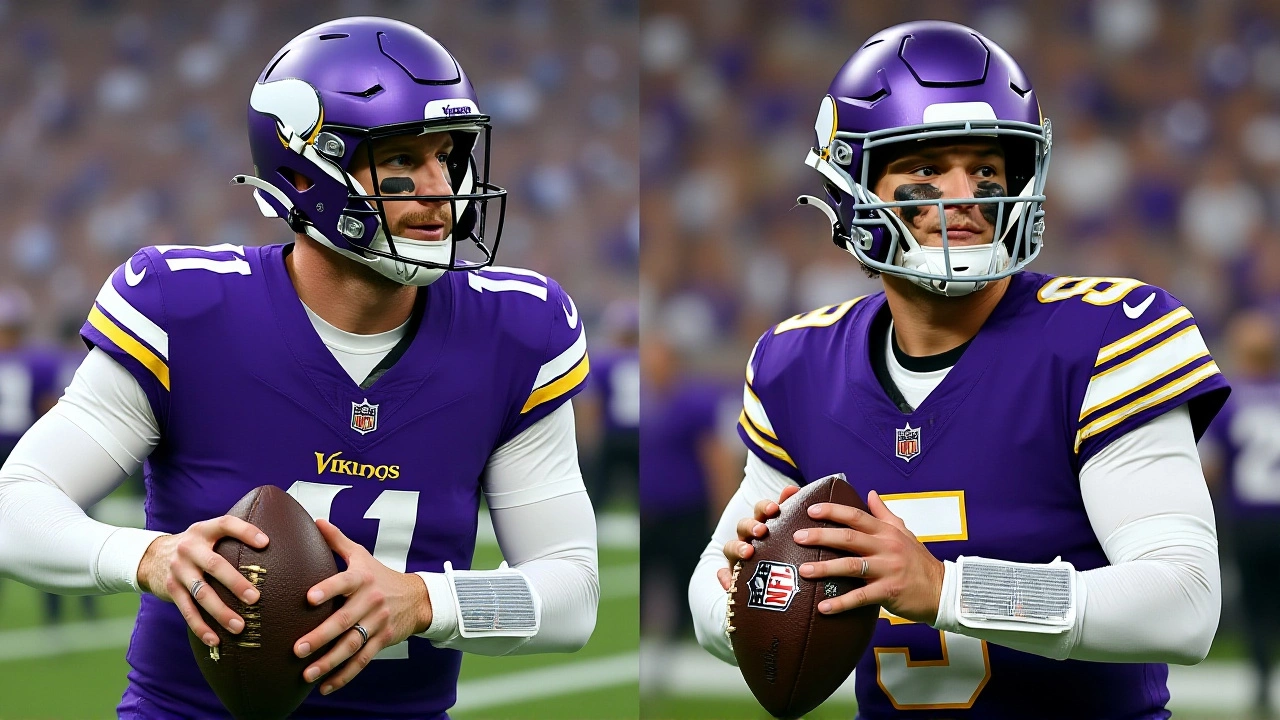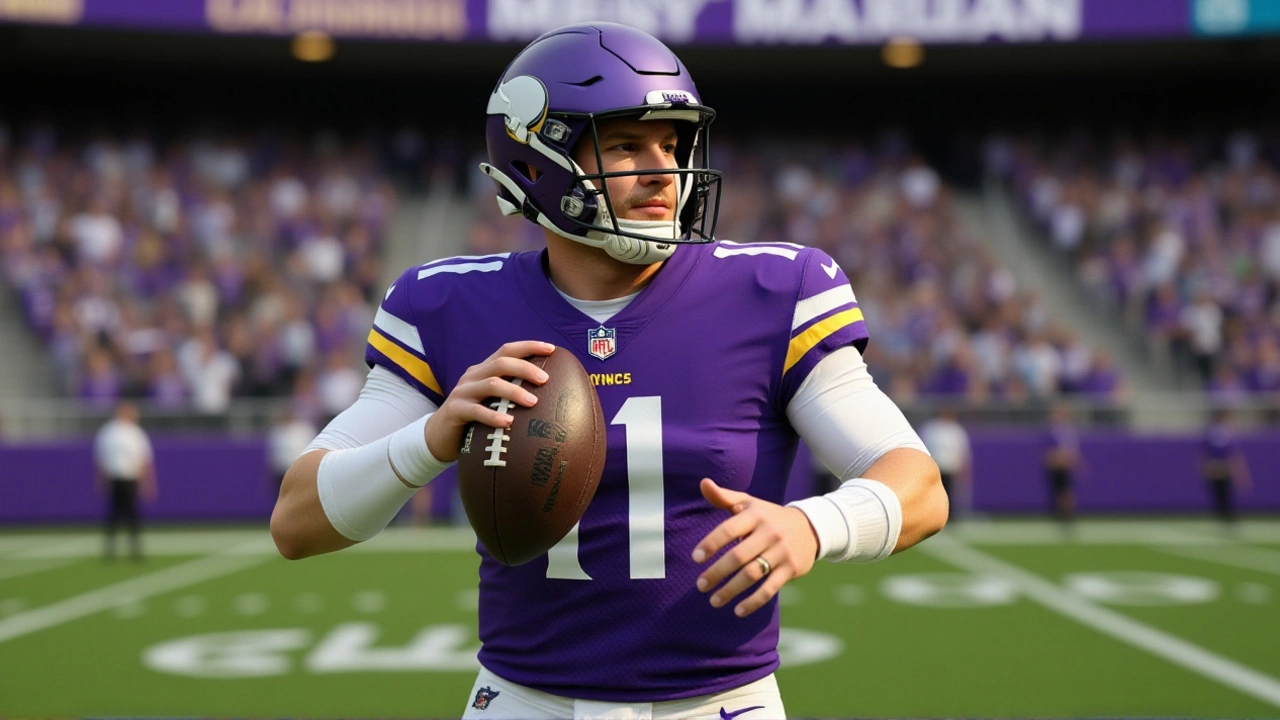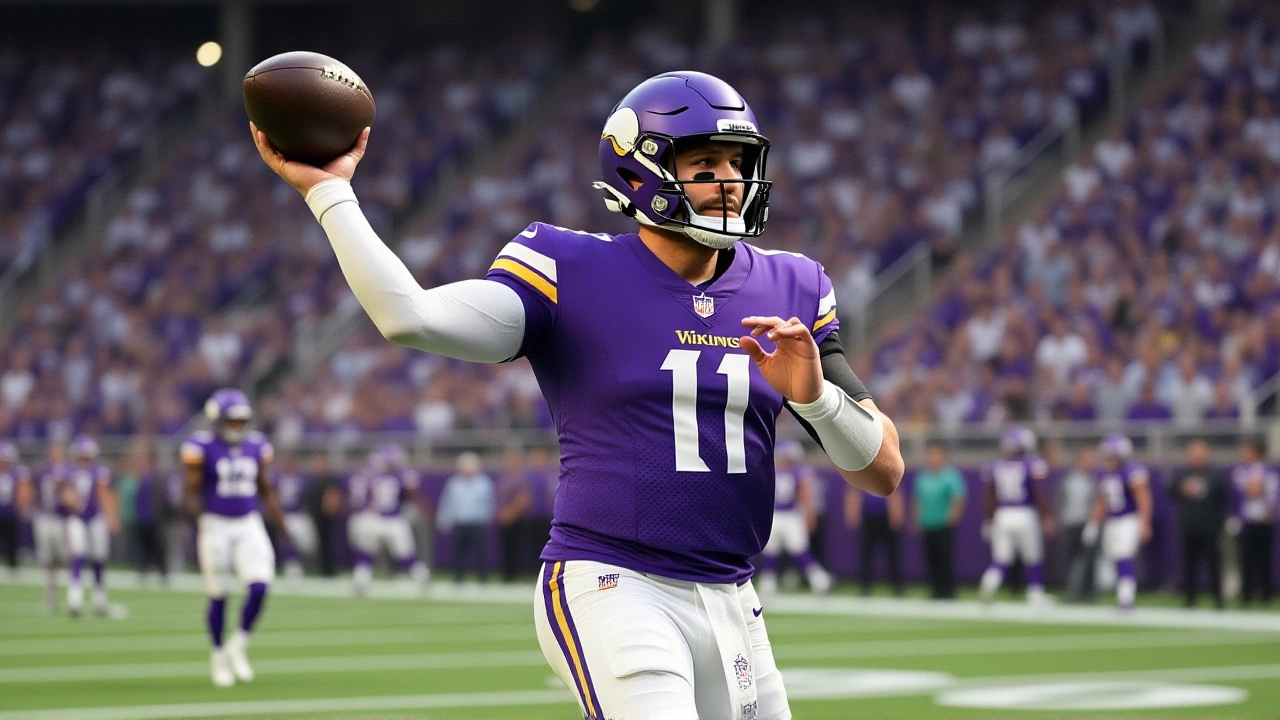When Carson Wentz, the 32‑year‑old quarterback of the Minnesota Vikings, stepped onto the field at SoFi Stadium on Thursday night, few could have guessed the extent of the trouble ahead. The Los Angeles Chargers’ defense, long dismissed as a "train wreck" after three shaky outings, turned the tide with a ferocious 37‑10 victory that left the Vikings reeling.
Why this game mattered
Thursday Night Football has become a bellwether for teams battling early‑season identity crises. For the Chargers, a 5‑2 start meant every misstep threatened a slide back into the bottom half of the AFC West. For Minnesota, still searching for consistency at quarterback after the 2024 offseason, the matchup was a litmus test for Carson Wentz’s staying power as the presumed starter.
Historical backdrop
Wentz arrived in Minneapolis in 2024 after a peripatetic journeyman career that saw him don the helmets of the Philadelphia Eagles, Indianapolis Colts, Washington Commanders, and Los Angeles Rams. In his first four games of the 2025 campaign he logged 95 completions on 142 attempts (66.9% completion), 1,072 passing yards, five touchdowns, four interceptions, and a staggering 14 sacks. Those numbers placed him 26th in passing yards and 51st in interceptions league‑wide, according to ESPN’s season rankings.
The Chargers, by contrast, entered the contest with a defense ranked 23rd in fantasy points but a recent statistical dip: just two sacks and a single turnover in the three games before Thursday. Defensive stalwart Khalil Mack and rookie edge rusher Tuli Tuipulotu were expected to shoulder the load, yet the real story unfolded elsewhere.
Game‑by‑game breakdown
The Chargers struck first in the opening drive, with quarterback Justin Herbert completing 13 of 15 passes for 162 yards, two touchdowns and a single interception. Herbert’s precision against the blitz echoed his career‑best performance against a heavy pass rush, posting the fourth‑most yards in such situations.
Midway through the first quarter, rookie defensive back R.J. Mickens forced a fumble that was briefly called back, then secured his first NFL interception against Wentz. "He's now only 10 behind his dad, Ray Mickens," the commentary noted, underscoring the family legacy.
The second quarter saw Justin Eboigbe explode for two sacks in the opening ten minutes, crumpling the Vikings’ protection scheme. Faced with relentless pressure, Wentz was sacked once more for a loss of 8 yards, and the Chargers forced a third‑quarter turnover on a forced fumble recovered by linebacker Tony Jefferson before his own injury curtailed his snap count.
Defensive heroics
Across the seven games leading up to Thursday, the Chargers tallied 17 sacks, six interceptions, and two forced fumbles. In this contest, they added another three sacks (Mack, Tuipulotu, and Eboigbe) and a second interception by Mickens, cementing a total of eight sacks and two turnovers in just 15 minutes of play. The defense also recorded a fumble recovery, though it would not translate into a score.
Derwin James, the team’s anchor safety, missed the game with an ankle injury, prompting the coaching staff to lean heavily on younger talent. "The guys stepped up," head coach Anthony Lynn said in the post‑game press conference. "We trusted our depth, and they delivered.

Offensive highlights for the Chargers
Herbert’s efficiency was complemented by a balanced rushing attack that amassed 85 yards on 18 carries, highlighted by a 20‑yard run from running back Austin Ekeler. The Chargers totalled 342 yards of total offense, outpacing Minnesota’s 165.
Vikings’ offensive woes
Wentz’s line protection collapsed repeatedly. Seven of his 14 pass attempts were under pressure before the halfway point, resulting in three sacks and a hurried 10‑yard scramble that went nowhere. Backup quarterback Nick Mullens saw limited action, entering only during the final minutes when the result was already decided.
Wide receiver Justin Jefferson still managed 92 yards and a touchdown, but even his elite route‑running couldn’t compensate for the trench battle. Jefferson’s achievement earlier in the season—joining Hall of Famers Randy Moss and Torry Holt with 8,000 receiving yards in his first six seasons—remains a bright spot in an otherwise dim night.
Impact and expert take
Analyst Daniel Jeremiah noted, "The Chargers finally showed the defensive identity they displayed in 2024. If they keep this pressure, they can neutralize any quarterback, even one with Wentz’s experience." For Minnesota, veteran commentator Tony Pauline warned, "Carson’s development stalls when the offensive line collapses. The Vikings must either upgrade protection or consider a different starter.

Future outlook
The Chargers return home next week to face the Denver Broncos, a matchup that will test whether this defensive resurgence is sustainable against a run‑heavy opponent. Meanwhile, the Vikings head to Philadelphia on November 2, where they’ll meet the Eagles in what could be a decisive test for Wentz. Minnesota’s coaching staff has already hinted at a possible quarterback competition after the loss, but head coach Kevin O’Connell reiterated, "We stand behind Carson. He’s learning, and we’ll give him the chance to grow.
Key facts
- Final score: Chargers 37, Vikings 10
- Carson Wentz: 17‑23, 213 yards, 1 TD, 2 INT, 4 sacks
- Justin Herbert: 13‑15, 162 yards, 2 TD, 1 INT
- Chargers defense: 3 sacks, 2 interceptions, 1 fumble recovery
- Venue: SoFi Stadium, Inglewood, CA
Frequently Asked Questions
How does this loss affect the Vikings' playoff chances?
Dropping to 2‑2 puts Minnesota into a tie for third place in the NFC North. They’ll need to win the remaining eight games and hope the Bears and Lions stumble to keep a wild‑card spot alive.
Will Carson Wentz remain the Vikings' starting quarterback?
Coach O’Connell says the team stands behind Wentz, but the loss intensifies scrutiny. If the offensive line doesn’t improve, the Vikings may experiment with Nick Mullens in the upcoming game against Philadelphia.
What did the Chargers' defensive turnaround mean for the AFC West race?
The dominant performance solidified Los Angeles as a top‑five defense and gave them the momentum to challenge the Broncos and Chiefs. A strong showing in the next three weeks could propel them into a division‑lead contender spot.
How significant was R.J. Mickens' first NFL interception?
Mickens' pick not only marked a personal milestone but also underscored the depth of the Chargers’ secondary. Matching his father’s career total after just one season suggests a promising future for the young corner.
What does this game tell us about Justin Herbert’s performance under pressure?
Herbert’s 13‑15 completion rate against a blitz shows he thrives when the defense over‑commits. His ability to stay calm and deliver yards efficiently bodes well for the Chargers’ playoff aspirations.
